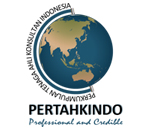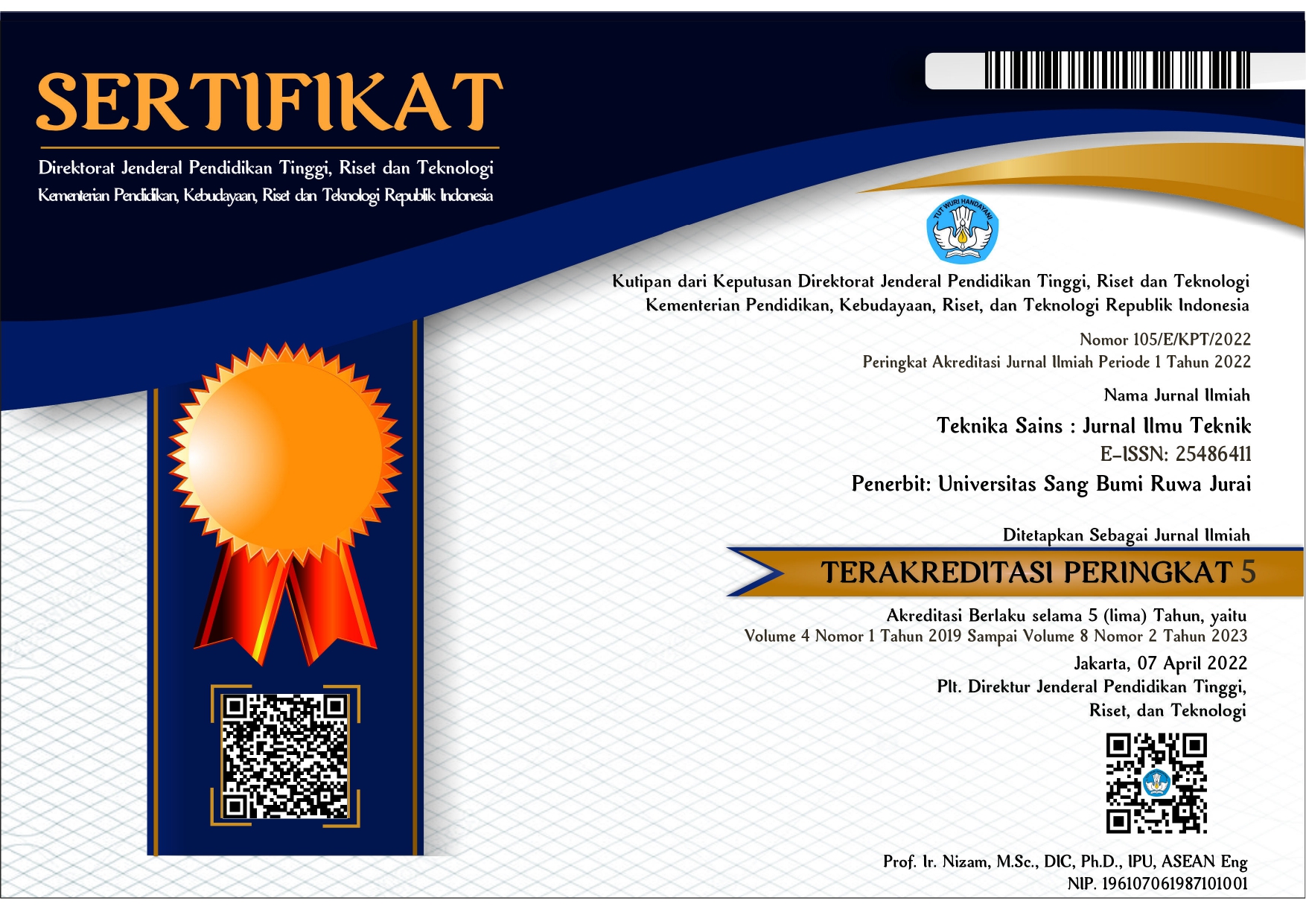Focus and Scope
Journal of Teknika Sains aims to provide a forum for national and international academicians, researchers and practitioners on civil and mechanical engineering and related field to publish the original articles. All accepted articles will be published and will be freely available to all readers with worldwide visibility and coverage.
The scope of the Journal of Teknika Sains is specific topics issues in civil and mechanical engineering and related fields such as (but not limited to):
1. Energy conversion,
2. Manufacture,
3. Power,
4. Structural Engineering,
5. Construction Engineering & Management,
6. Geotechnical Engineering,
7. Water Resources Engineering,
8. Transportation Engineering.
Section Policies
Artikel
Peer Review Process
Every manuscript submitted to Teknika Sains : Jurnal Ilmu Teknik is independently reviewed by at least two reviewers in the form of a "double-blind review". The authors are welcome to suggest at least three potential reviewers along with name and their email address. However, the decision to determine the appropriate reviewers is the right of the editor. The approved gallery proof of manuscript will early view online as early as possible upon received from the author and final proofreading by editor in chief.
Open Access Policy
All contents published by Teknika Sains : Jurnal Ilmu Teknik is licensed under a Creative Commons Attribution-ShareAlike 4.0 International License.
Archiving
Teknika Sains : Jurnal Ilmu Teknik utilizes the LOCKSS system to create a distributed archiving system among participating libraries and permits those libraries to create permanent archives of the journal for purposes of preservation and restoration. More...
Teknika Sains : Jurnal Ilmu Teknik strives for the constant availability of published articles. With this in mind, Teknika Sains : Jurnal Ilmu Teknik content is continually archived and preserved its published articles in the library of Universitas Sang Bumi Ruwa Jurai Lampung.












